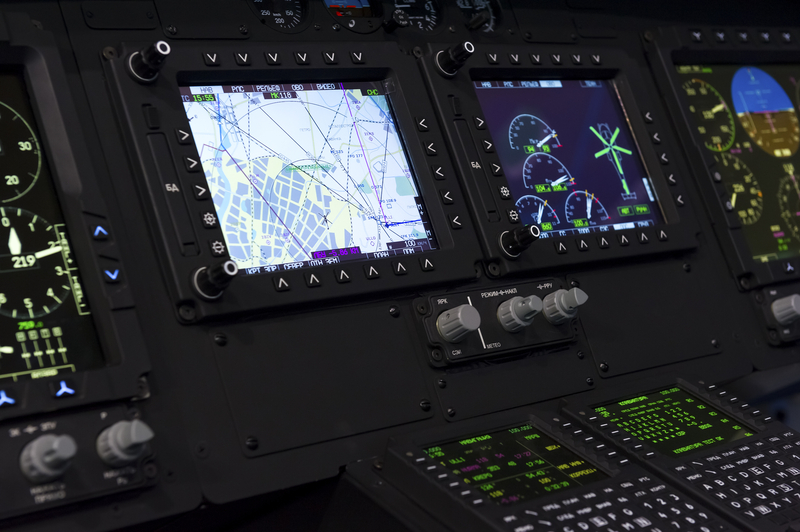
Electrical Power considerations for MIL-STD-810 testing create a new level of detail for functional and operational tests. The standard has placed increased emphasis in recent revisions, to changes in voltage, frequency, phase displacement, and other power deviations that are expected to be present in the normal operation of the device to be tested.
Guidance for these power fluctuations can be found in the following standards:
- MIL-STD-704 Aircraft Electrical Power Characteristics
- MIL-STD-1275 Characteristics of Volt DC Input Power to Utilization Equipment in Military Vehicles
- MIL-STD-1399 Interface Characteristics for Shipboard Equipment
- RTCA DO-160 Environmental Conditions and Test Procedures for Airborne Equipment
Where these electric power system fluctuations could cause test item failure or pose a significant threat to the safety of personnel it may be necessary to perform an electrical survey of the intended platforms power characteristics.
MIL-STD-810 Testing Purpose
MIL-STD-810 Environmental Engineering Considerations and Laboratory Tests, is a series of laboratory methods to verify and validate equipment for a wide variety of environments. As such the standard places a heavy emphasis on tailoring testing to replicate, as nearly as possible, environmental stresses that will be present in the intended environment. Furthermore it stresses, where applicable, to examine the synergetic and cumulative effects that may affect equipment operation.
Method 520 Combined Environments
Electrical power fluctuations may affect the operation and reliability of equipment. These effects may be more pronounced when combined forcing functions are present such as, high temperature, low temperature, altitude, and humidity. Method 520 Combined Environments provides information on these electrical stresses that is applicable for testing in other methods.
Method 520 is intended for evaluation of equipment for utilization on aircraft. This method includes procedures for Engineering Development, Flight or Mission Support, and Platform Envelope. This method considers electrical power stresses incurred from ground support equipment and during mission profiles. Specific conditions it considers are:
- Normal AC system stresses
- ON/OFF cycling during normal operation
- Mission related transients within platform electrical systems
- Safety related stresses for abnormal or emergency conditions for flight critical and safety critical components
These factors can then be included in a mission profile so that electrical power fluctuations can be integrated into a mission profile that is included in laboratory testing. This approach can be utilized for testing of other equipment types such as military vehicle, ground stationary, or shipboard where the equipment is mission critical or safety critical.
The Role of Developmental Test and Evaluation
MIL-STD-810 is intended for developmental test and evaluation of equipment intended for use in military systems. It is also utilized in commercial industries where rugged equipment is essential. To ascertain which testing should be performed and determine test parameters it is essential to engage in a tailoring process. This process integrates measured data from specific areas of intended use and data compiled in Part Three of the standard. This data is collected in a Life Cycle Environmental Profile (LCEP).
An LCEP is an analysis of the environmental stresses likely to be encountered during the entire life of a product, from manufacturing to end of life. It serves as an input for a Environmental Issues/Criteria List (EICL) which is a collection of justified environmental parameters for design and product test. These stresses include those found in logistical, tactical, and operational phases.
Once this analysis is completed, Detailed Environmental Test Plans can be created that detail the exact procedure to be performed, operational and functional test to be run, essential data to be collected, and specific pass/fail criteria for the Unit Under Test (UUT).
CVG Strategy Test and Evaluation Experts
CVG Strategy engineers can help you integrate fluctuations in electrical power for MIL-STD-810 testing. Our experts at CVG Strategy have extensive experience in Climatic/Dynamic and EMI/EMC testing for a number of industries and products, both military and commercial. CVG Strategy specializes in Independent Developmental Testing and Evaluation including development of Test Plans, Test Procedures, Test Witnessing and Troubleshooting.
CVG Strategy is a consultancy offering coaching, mentoring, training and program development focused on areas including Business Process Improvement, ITAR and Export Compliance, Cyber Security and Quality Management Systems.


